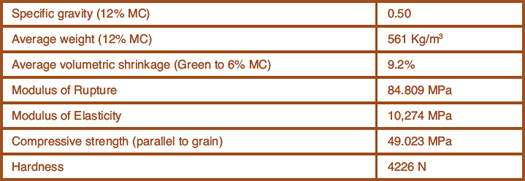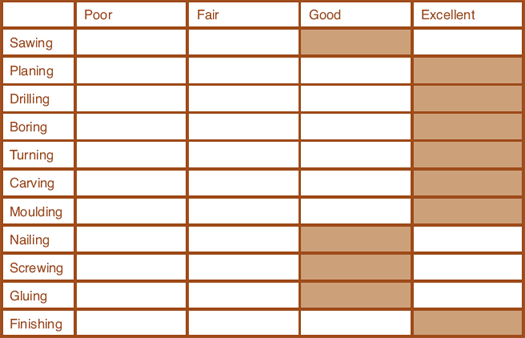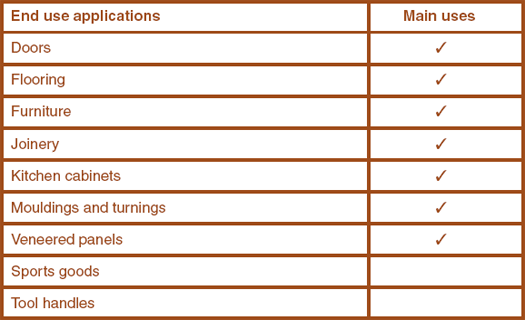Cherry




Botanical name: Prunus serotina
Common/commercial names: American Black Cherry
Distribution & Availability
Found throughout Eastern USA, but main commercial areas are Pennsylvania, Virginia, West Virginia and New York State. Although cherry accounts for less than 2% of the growing hardwood resource, it is widely available in a full range of specifications and grades as both lumber and veneer.
General Description
The heartwood of American cherry varies from rich red to reddish brown and will darken on exposure to light. In contrast the sapwood is creamy white. Cherry can be supplied steamed, to darken sapwood or left unsteamed. The wood has a fine uniform straight grain, smooth texture, and may naturally contain brown pith flecks and small gum pockets.
Physical & Mechanical Properties

The wood is of medium density with good wood bending properties. It has low stiffness, medium strength and shock resistance.
WorkingProperties

Cherry is easy to machine. It nails and glues well and when sanded, stained and polished, it produces an excellent smooth finish. It dries fairly quickly with moderately large shrinkage, but is dimensionally stable after kilning.
Durability
Rated as resistant to heartwood decay and the heartwood is moderately resistant to preservative treatment.
Main Uses

Furniture and cabinet making, highclass joinery, kitchen cabinets, mouldings, panelling, flooring, doors, boat interiors, musical instruments, turning and carving. The subtle range of red tones found in the heartwood have made this species very fashionable for many high end applications.
Other Information
On exposure to UV light, cherry products with a natural finish will generally darken in colour over time. This premium wood has naturally occurring pin knots and gum streaks which are not considered defects. Sapwood is admitted without limit. Because of this NHLA rule, cherry lumber is often sold with a heartwood specification such as 90/50, which means one face will be 90% heartwood and not less than 50% heartwood on the reverse face. Consult your supplier about how their cherry is being sold.
